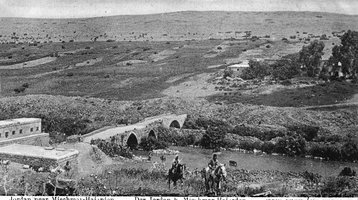A greater Library for a greater community
The new academic year at the Library began with a unique sense of anticipation. For me as an individual, this autumn marks the beginning of my first full academic year at the University of Chicago, and I look forward to meeting new members of our community and deepening relationships with those who have long considered the Library their academic home. For the Library as a whole, after two extraordinary years when services were repeatedly redesigned to meet the challenges of the pandemic environment, this year presents an opportunity to begin reimagining the Library and rebuilding for a greater future. In 2022-23, the Library is focused on five strategic objectives that will prepare us for that future.
The most urgent of our priorities is organizational development. Since the start of the pandemic, the Library has lost 25% of its staff. We are now embarking on a year-long recruitment campaign to fill these vacancies, onboard new colleagues, and effectively build a new team. This process is being supported by a review of governance, decision making, and communication across the organization. In parallel, we are undertaking planning for space and collection development, our second priority. Many of our spaces need upgrading to continue to meet the needs of patrons and staff. We are looking to take a coordinated approach to enhancing spaces across campus libraries. This process needs to be led by the development of a service plan that also takes into account our needs for collection management.
Based on these two critical enablers, we are refreshing our approach to academic engagement—our third priority. With the reading rooms open again after COVID-19 lockdowns, now is a good time to reconnect with our patrons, refreshing existing partnerships and building new ones. This includes planning for enhanced services for the College population that has grown substantially over the past years. Closely linked is our fourth priority, the development of new research services, especially around scholarly communication and research data. The Library has a key role to play here, not just with regards to curation of digital research outputs but also in helping faculty and students to manage and share them effectively.
Last, but certainly not least, we are working on a systematic approach to community engagement. Building on existing efforts, we are developing a broader strategy for civic engagement, working in coordination with the University. Our Library is built around the idea that access to information services is making the world a better place—a mission that cannot be restricted just to the campus. This is even more important as our campus is on the South Side, a part of Chicago that has felt the devastating economic and social impact of structural racism. Our aim is to build equitable partnerships with the communities around us, helping to strengthen local communities and expand economic opportunity.
Work on our civic engagement strategy has only just started, but I see many opportunities for the Library. We can expand our work with schools, embedding our extensive collections in teaching and supporting information literacy. The latter could also be a theme in expanded partnerships with public libraries. We have previously worked with public libraries on similar approaches, for example providing training to help librarians deal with healthcare-related queries. I would also hope to explore how Library resources can support local entrepreneurs, in coordination with incubators and other services already in place. Another ambition is to raise funds to offer local apprenticeships in library and information services, providing training opportunities and helping to make our profession more diverse. Most importantly though, we are preparing ourselves for an open and equitable dialogue with our neighbors to identify opportunities that are meaningful to them. I am very much looking forward to that dialogue.



